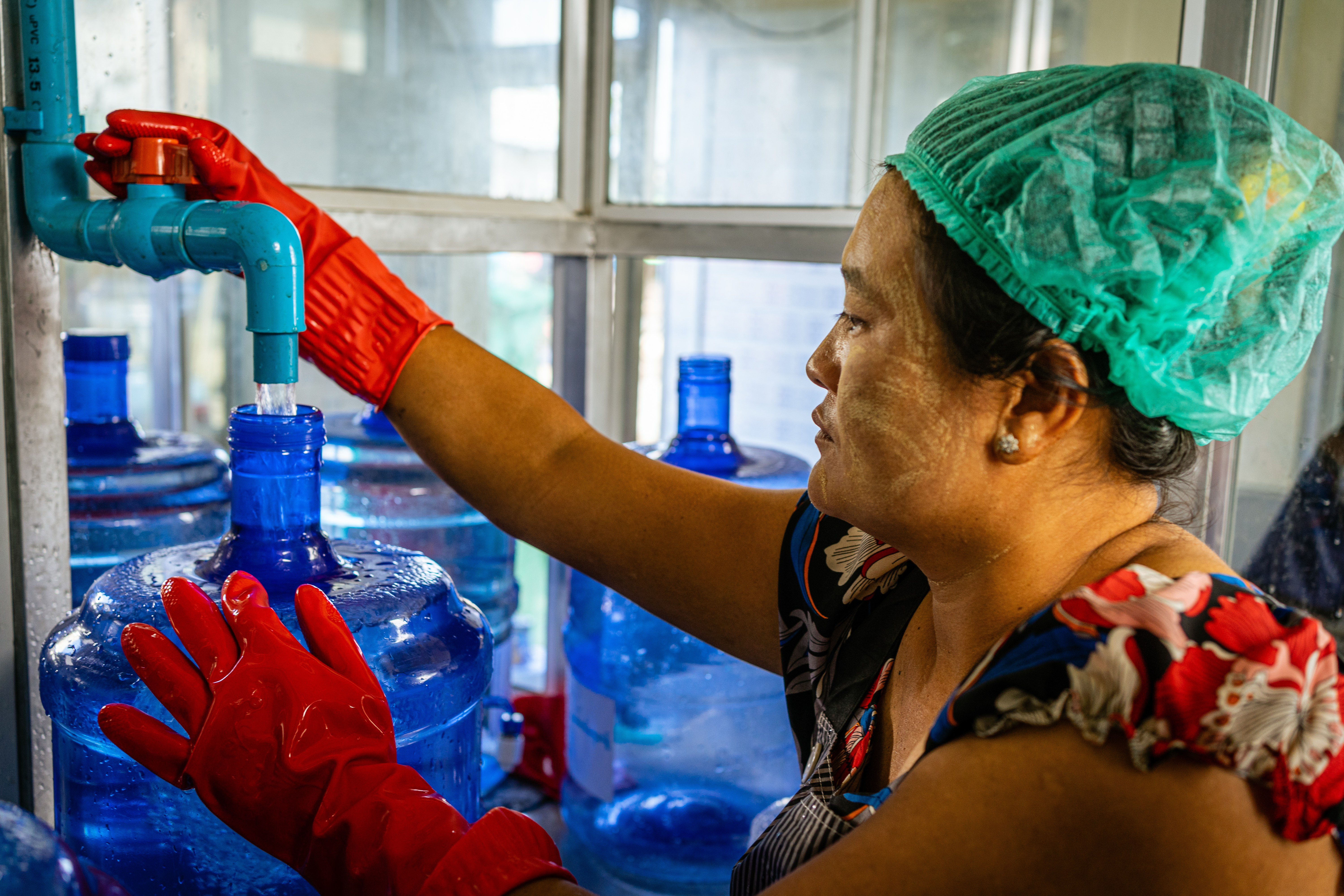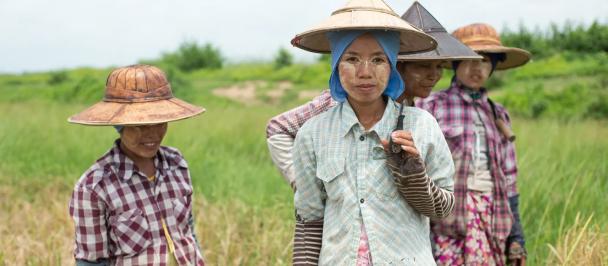URP
Urban Resilience
The Situation
Urban poverty in Yangon, Myanmar's former capital and largest commercial hub, has grown sharply in recent years. In six years, the percentage of residents living in poverty skyrocketed from 10 per cent in 2017 to 43 per cent in 2023. With a population of 6.2 million, this means nearly 2.7 million people now find themselves struggling to make ends meet—an increase of about two million. Life in Yangon's outer areas poses even greater challenges, where access to essential services is often limited, informal settlements are prevalent, and job opportunities are scarce.

Project participant, Ma Lin Lin, fills a bottle with clean drinking water at the facility she manages in Hlaingtharya Township, Yangon.
How UNDP is Responding
The Urban Resilience Project (URP) strengthens resilience in peri-urban Yangon by working across eight vulnerable townships through a community-driven approach. At the core of the project are community development committees, led largely by women, and community resilience books that help steer local planning and investment. These tools ensure that community priorities shape practical, sustainable solutions tailored to their unique needs.
URP improves basic services and strengthens disaster preparedness by rehabilitating water systems, upgrading roads and footpaths, installing solar streetlights, and supporting waste management practices. The project also expands livelihood opportunities through vocational training, revolving funds, grants, and circular economy initiatives that support small businesses, especially for women and youth.
URP also partners with civil society organizations to provide legal and protection services on a range of issues such as gender-based violence. Grounded in extensive research and strong local partnerships, URP's initiatives bridge urgent needs with long-term recovery and inclusive urban development.

 Locations
Locations




